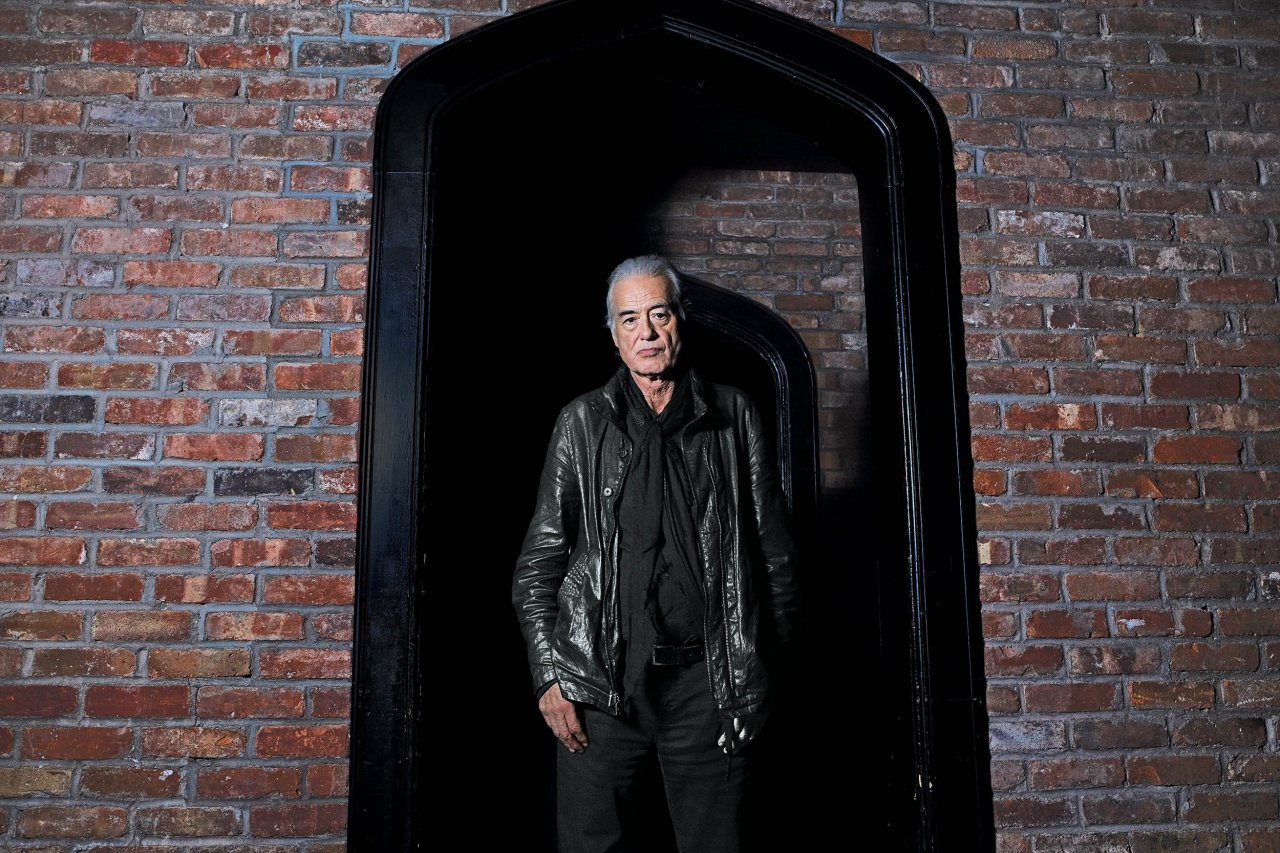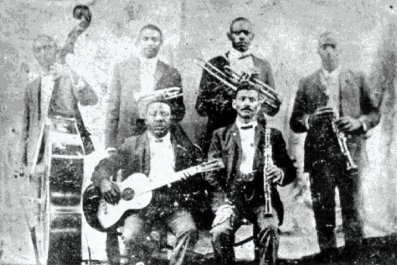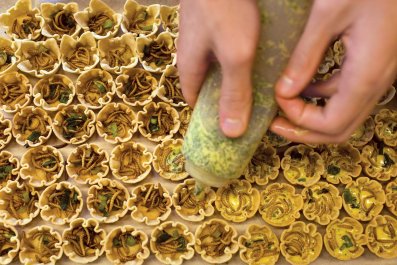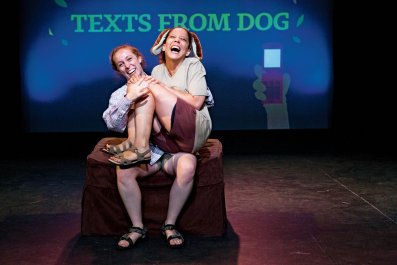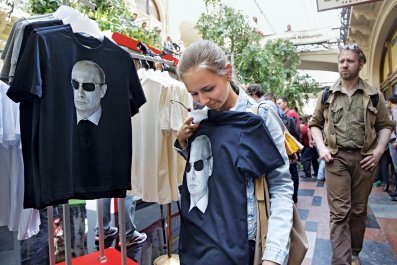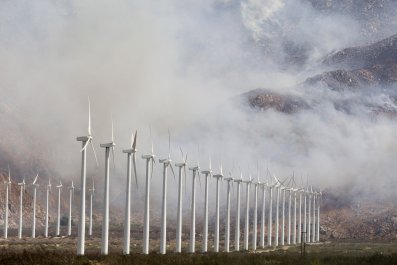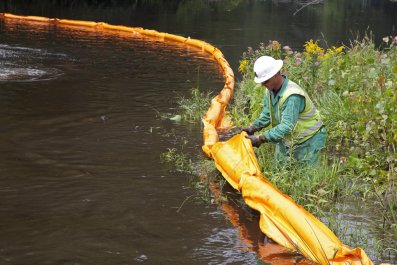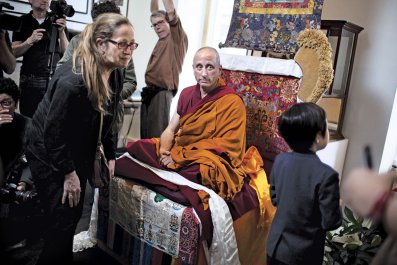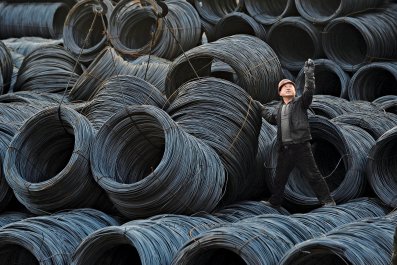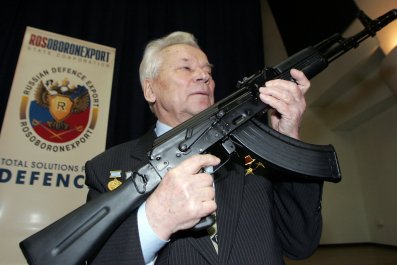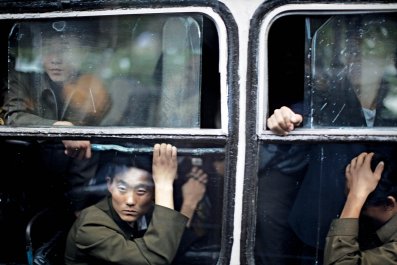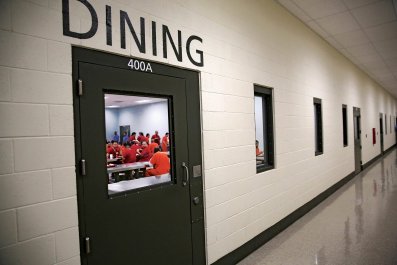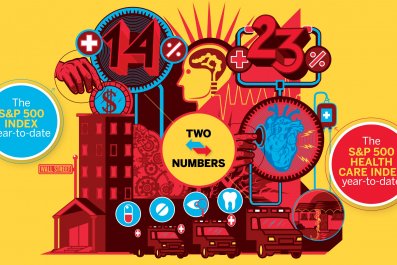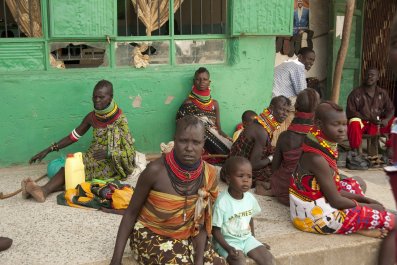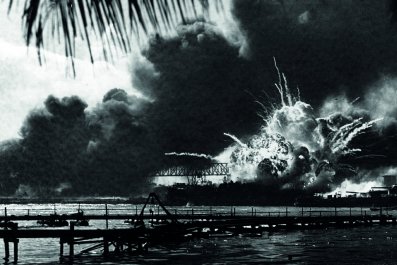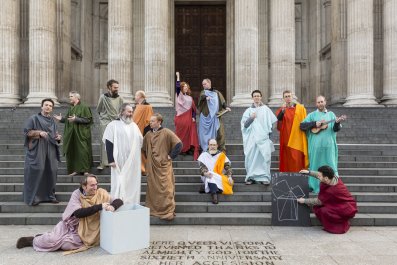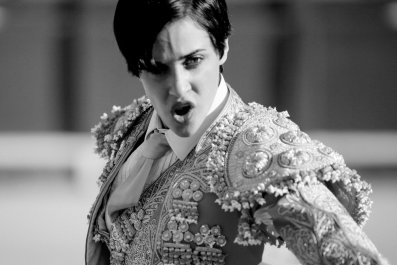Led Zeppelin is revered (and reviled) for its pioneering sound: swamp rock infused with sonic blues, a healthy interest in the occult (or at least Tolkien) and a swaggering '70s sexuality. Jimmy Page, one of the Yardbirds' legendary lead guitarists, assembled the band in 1968 and eventually recruited its other members—vocalist Robert Plant, John Paul Jones on bass and John Bonham on drums. Page was responsible for crafting some of Led Zeppelin's most memorable song arrangements, shredding many a guitar solo and producing the band's extensive catalog until it disbanded in 1980.
Zep reunion rumors recur every so often, but Page and Plant have yet to agree about getting the band back together. Both have been productive since the band's demise. In addition to reissuing every major work in the Led Zeppelin catalog, Page, now 70, compiled a massive photo autobiography tracing where the journey all began, and he plans to begin performing again soon.
Newsweek sat down with Page in New York City.
Let's talk about the autobiographical photo book. Were most of the photos from your archive, or did you have to hunt them down?
I had a number of photographs in my own archive, certainly the only shots [from the] pre-Beatles era, and that sort of gives an idea of what things were like down in London. People know what went on, you know, with the Beatles, but there was a totally different music scene going on down in the south. It was good to have all these archival photographs to put in, because I knew I could chart a journey all the way through. I had photographs from our cottage, where Robert [Plant] and I went on a small, short vacation.... The song "That's the Way" was written there.
It was feasible with all these photographs people might not have seen before, along with things they may have seen before, along with things that I really wanted to search out that I remembered and wanted to include in this. It's not just the photographs. It has the tour itineraries, the various bands that I was in, and it has the first visa stamp [on his passport] coming to America [laughs].
But it's mainly about music. What music always meant to me was something which you would put on and just, in the moments when you could really listen to it, concentrate on it, listen to it and then just be taken by it. And it's the same thing with something like this.
What music electrified you as a young person?
As a kid, I heard the early [Elvis] Presley stuff, Little Richard. And that just spoke volumes to young people. The first photograph I've got in there, I'm about 12 or 13, and I'm already in the throes of sort of getting through a few chords on the guitar. But the damage was done once I heard that music, you know? When I started to listen to it, it was like…this sort of hand came out of the speaker and just pulled my head right into the middle of it all.
I still kept up on my academic studies and such, but it was my hobby. And at that point, there wasn't really any sort of equation. I didn't come from a musical family. If you came from a musical family and it was passed down that way, there was a good possibility that you might make your living in the music business. Something that was just your hobby, that wasn't necessarily going to be the case.
As a kid, I made this connection: I wanted to be part of what was coming out of America, and you can see it in these early photographs. There's one of Red-E-Lewis and the Redcaps, and we're quite clearly trying to be Gene Vincent and His Blue Caps. It was innocent fun. But there was a determination and a passion even then that I had. From that point, I started to play from the rockabilly styles of guitar, and that then translated more into the blues. Basically researching on Presley I started to wonder, Well, who is Big Boy [Arthur Crudup]? Who is Sleepy John Estes?
Howlin' Wolf, too.
Yeah! Once you discover Howlin' Wolf it's like, Who is this man? And so my taste was sort of going from the rockabilly style of guitar to blues and the riffs, these sort of trance riffs from the Chicago movement of the 1950s, Chess and the Vee-Jay catalog, to name a few. Then the country blues. I was taking all this on, and I had a very healthy interest in Indian music.
That's how far back all that goes. So the fact that I went into the session world, and I had a number of sort of styles at my fingertips, if you like, it really put me in good stead because I wasn't just a one-trick pony. I could play all kinds of different things, and be asked, Well what would you like to do? If you come up with an idea on this, just go ahead and play! And I would, and I really enjoyed it. I had a voracious musical appetite.
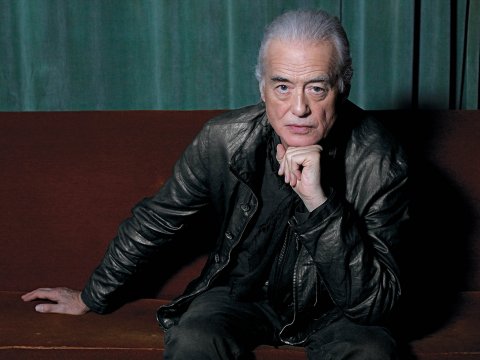
You've also been compiling massive box sets of reissued Led Zeppelin albums, along with overdubs and accompanying photography.
Yeah. Hundreds of hours of tapes, listening to bootlegs to make sure I knew what was out there and what wasn't of the studio stuff. It was an epic chore. But the way that I saw it, I needed to do it because I was the one who had the most points of reference along the way, being the producer of the band. The companion discs have different versions of songs that had never come out before, different mixes. But just to give, like, this window in, I could make a portal into the times the albums were recorded, so people could get a feel for the work that went into it. They all know the studio albums and the versions, but to hear "Whole Lotta Love" off the companion disc can be quite scary for the first time. It's like a voodoo ritual. That's what so cool about it!
It's also a great glimpse into the studio process of making the albums.
I think that the albums were definitive, because that's what was chosen. But the word album is really important because it was designed for vinyl, to have Side One when it would begin and deepen, and then you would turn over to Side Two, which would sequence through and finish. It was with great care that the numbers were put on those albums, the sequencing. So it would give the next number even more dramatic effect, the space it would occupy.
But the raison d'être [of this project] was to get more information. I knew the fans would love it. It wasn't just two bonus tracks added to each album, it was something of serious substance to go along with it.
What was it like revisiting the songs?
I had to really concentrate and not do anything else. Just listen to it. Fortunately, my memory really served me well. Something would be playing and it'd be numerous tapes at the same time; I'd put it on and I'd be, like [snaps], I know where this is. I didn't have to listen to all of it. Because at the time, the attention to detail—as a producer—was such that you really needed to remember so much, I was really lucky that it sort of stayed in there. The song "Keys to the Highway" on the third album, I hadn't even heard it from the recording days. But I remembered what was going to happen in the song. It was spooky, really.
I set myself an agenda that involved doing my own career, if you like, the Zeppelin studio material and the inevitable next step from that, which is actually to reappear. To be playing.
Are you planning to perform again?
I hope to be playing by the end of next year. I've gotten new music that I didn't record, and I've got some that I hint at on the It Might Get Loud documentary. It's just a guitar solo on its own. But I have ideas for that music, music of that period and more recent music that I've written. But no matter when they're recorded, if you've got a really good riff, it doesn't matter if it was recorded 30 years ago, 15 years ago, five years ago or five months ago. If it's presented in the right way, it's still current. It's not all riff material, but it's all guitar music.
Would you consider doing an off-kilter kind of performance, perhaps in an experimental venue?
That's really interesting you say that. I've got some experimental music that I found along the way on this archive journey. I had to devote more time to all of this and the promotion, but it was going to be a part of an event, in London.… In the end, I couldn't pull it together. But that would have been an avant-garde sort of circumstance, and it would have been interesting, in a sort of big warehouse with various installations. I should get in touch with the people who were going to do it.
But that's what the future holds! It holds all these surprises; endless, really. The only thing that's stopping those possibilities is your imagination. Mind you, I've started racing against time now. That's when it gets really exciting.



